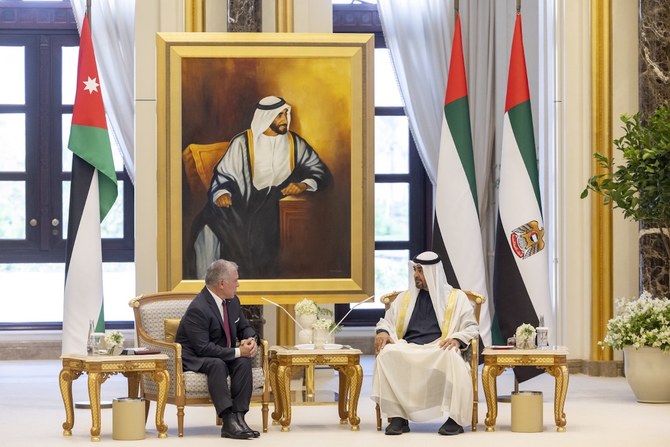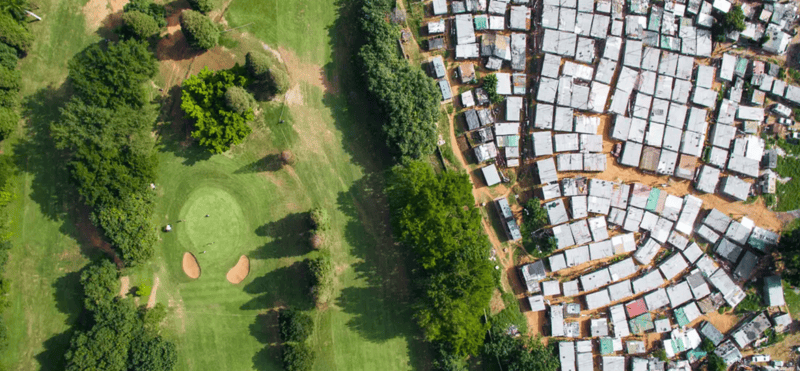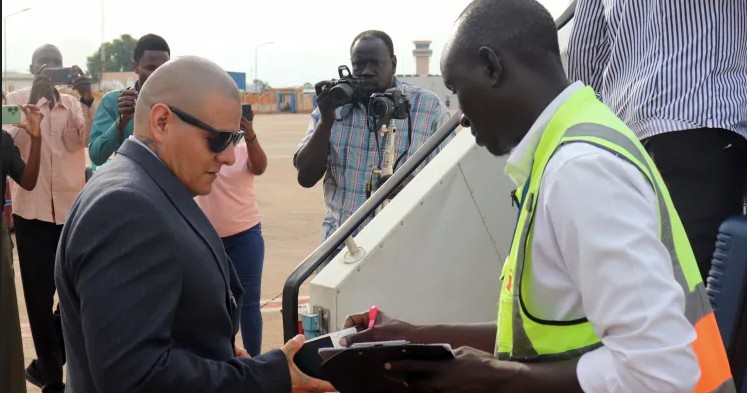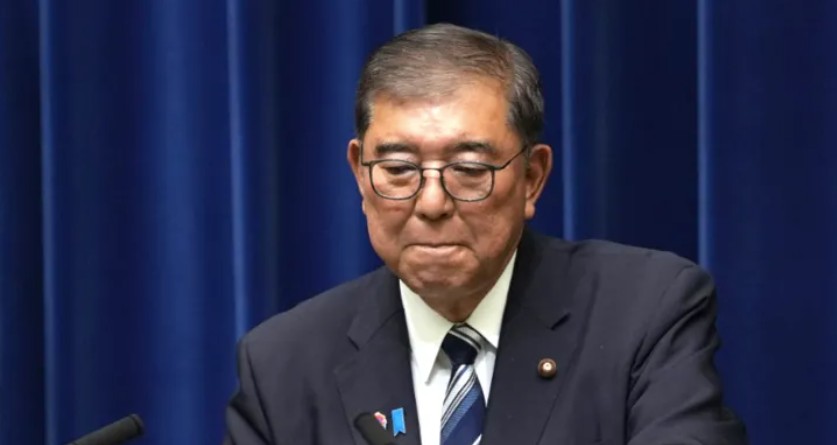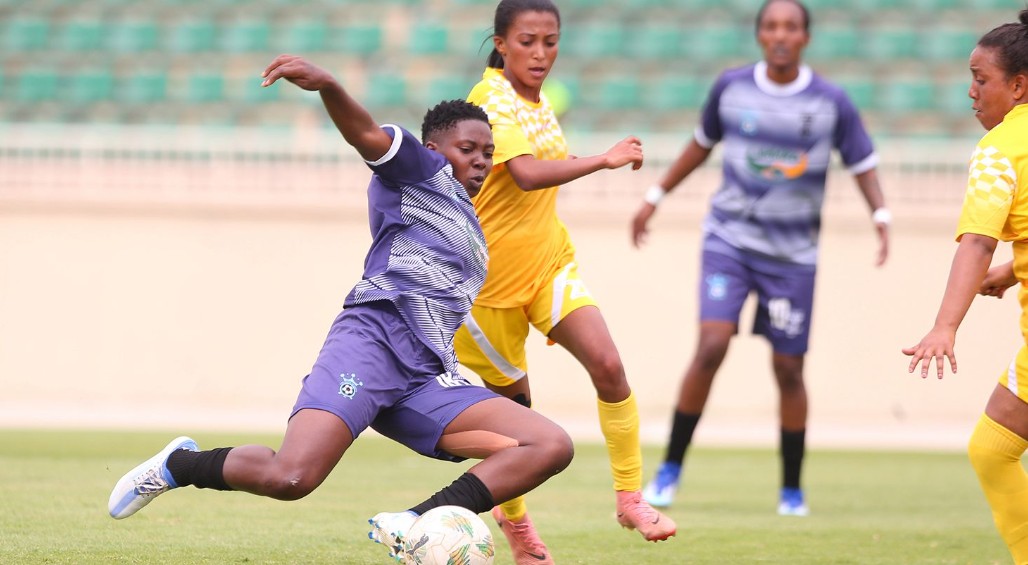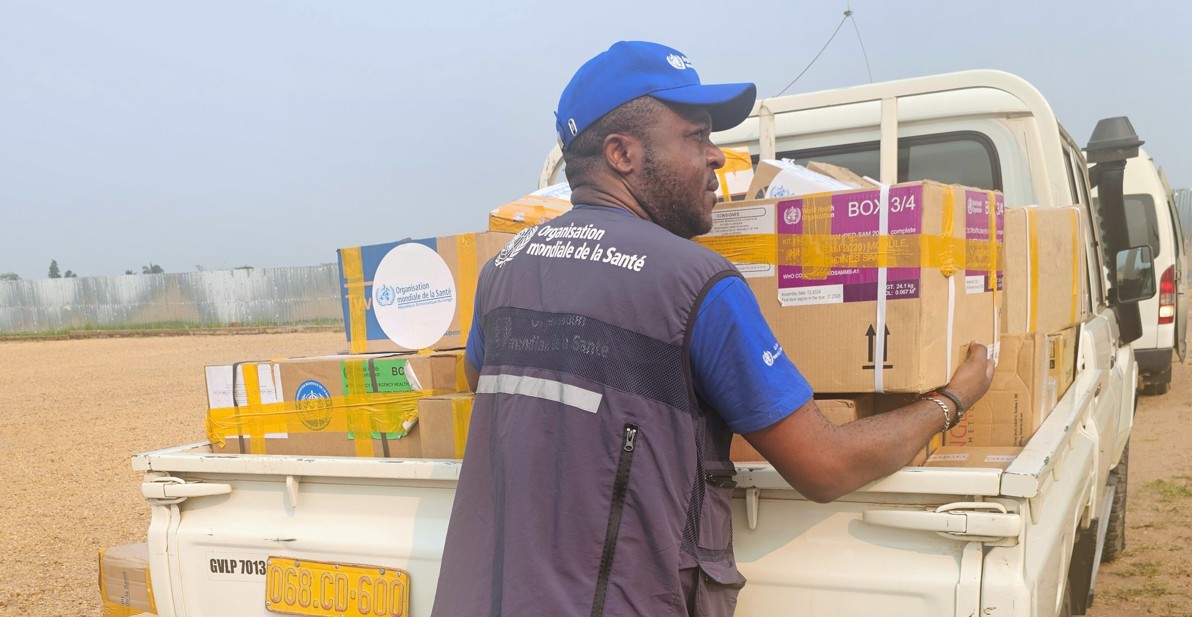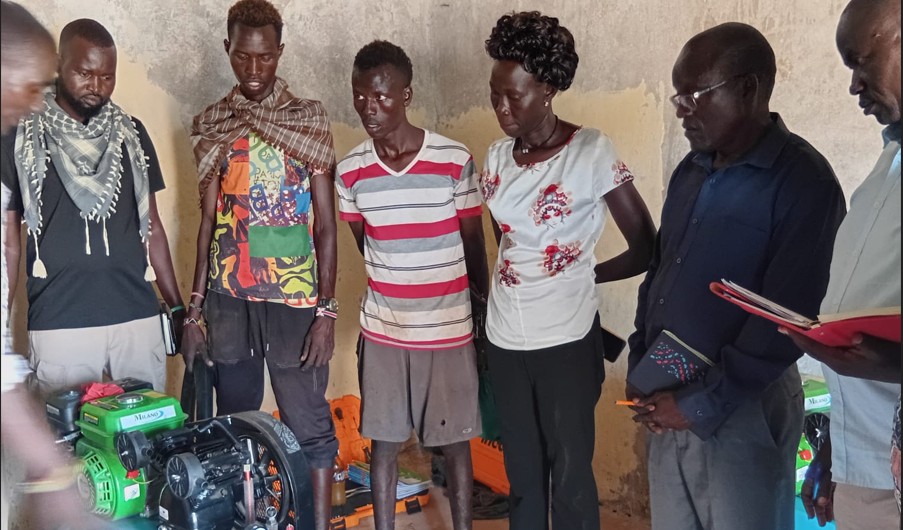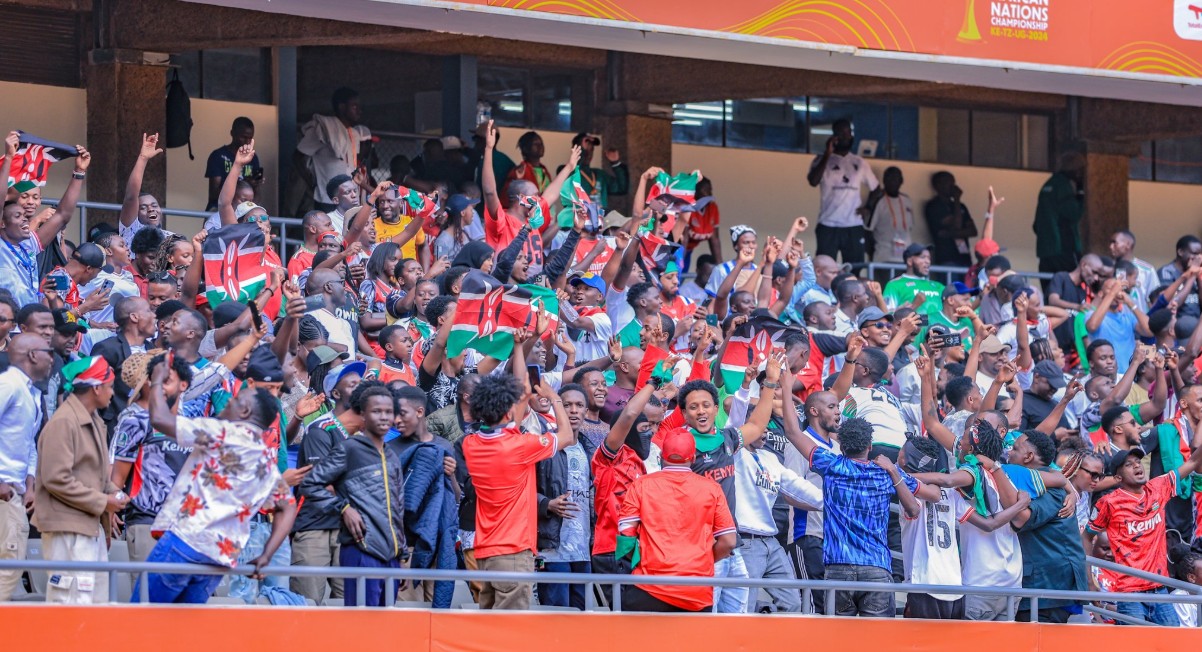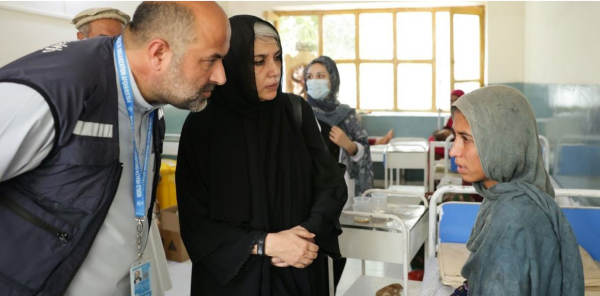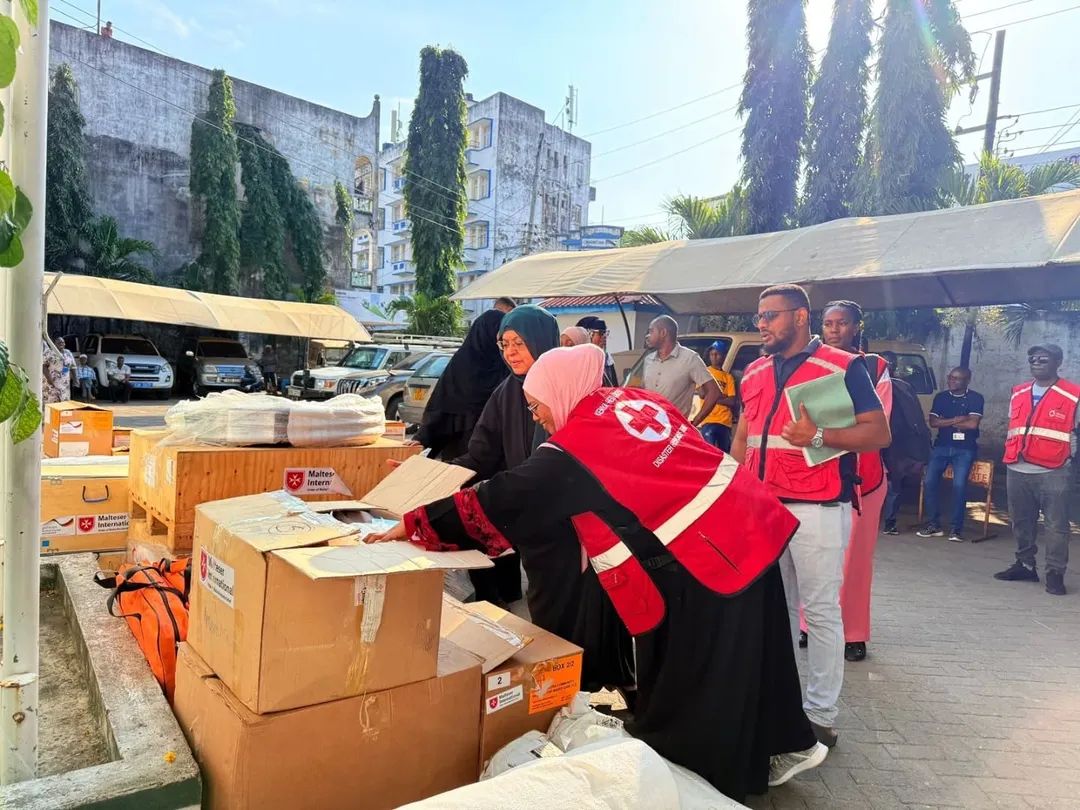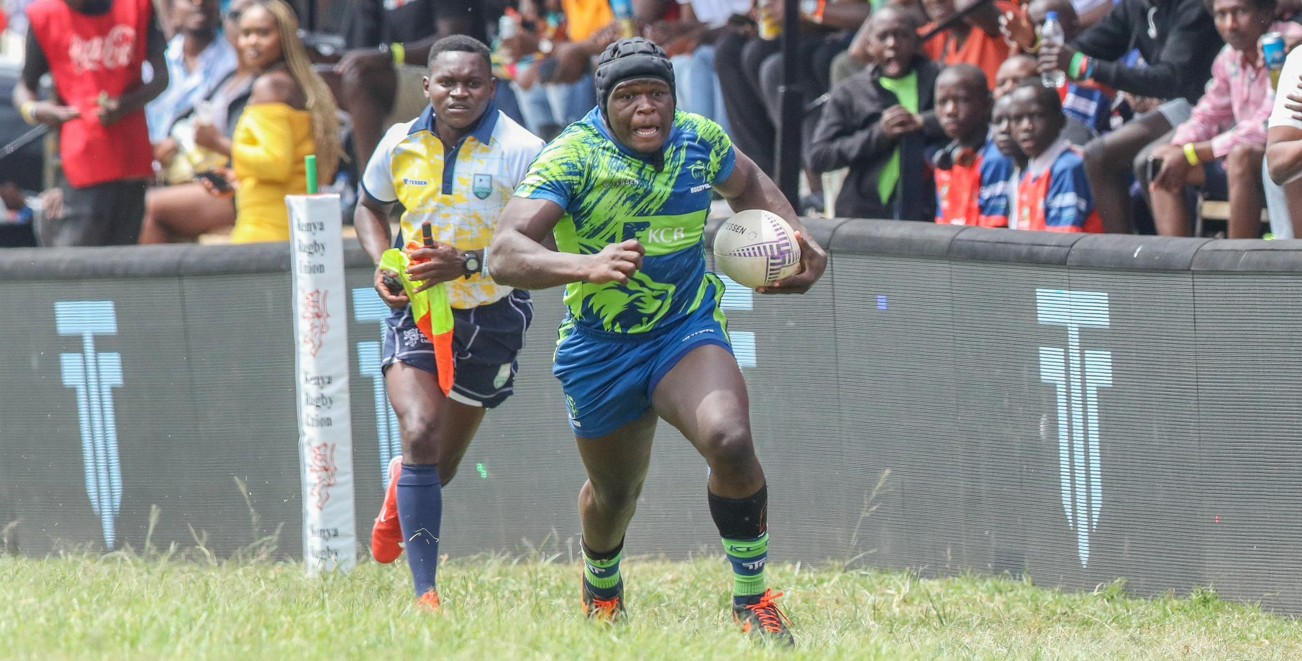Charting a path: How survivors, patients are navigating the cancer landscape
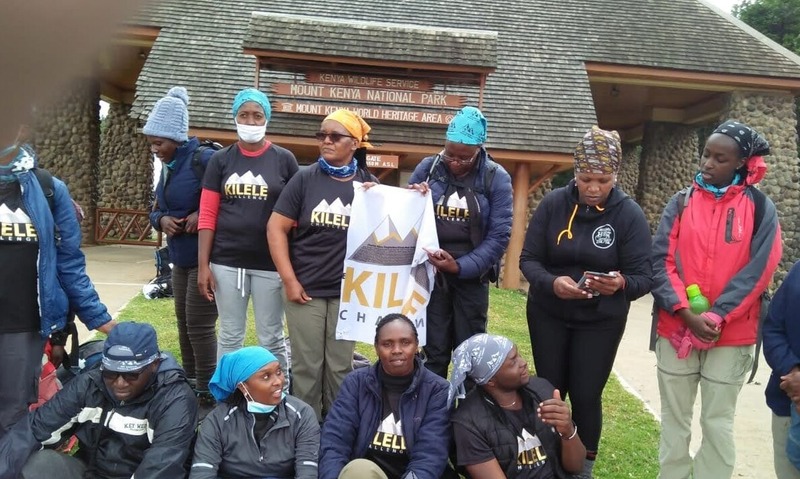
Data from WHO shows that approximately 1.1 million new cancer cases occur each year in Africa, with about 700,000 deaths.
In 2017, Julia Okere was to start her retirement after working as a primary teacher for decades.
One morning, what started as a toothache for the teacher would later be the beginning of her battle with not one but two types of cancers.
"In April 2017, a month after her colourful wedding, mum complained of the tooth that led to the swelling of her face and jaw. Tests were done, biopsy was done. After three months we got the results that she has cancer," Caroline Okere, the oldest daughter of Julia, recounts.
More To Read
- The night the mountains shook: A doctor on the front lines of Afghanistan’s earthquake
- Kenya battles rising mpox infections as WHO lifts global emergency
- Ethiopia’s emergency medical response system is up and running – what other countries can learn from it
- Mpox deaths near 2,000 in Africa since 2024 amid recent decline in cases: Africa CDC
- Genetic tests for cancer can give uncertain results: new science is making the picture clearer to guide treatment
- Meet Tanzania’s ‘hero rats’ trained to detect landmines, TB and earthquake survivors
Julia, popularly known by her pupils as Mrs Okere, had Osteosarcoma, cancer of the bones and Leiomyosarcoma, cancer of the soft tissues. That would later lead to the removal of the eye and the left side of her jaw in India.
Caroline and her three siblings began a long run in and out of hospitals in a race against time to save their mother after receiving the disease diagnosis.
"We went to India and stayed in India with my mum for 10 months. It was sad and lonely. I was confused and things just took a different turn for us. Mum looked different. I had to go through counselling. I had to prepare my family back in Kenya. I had to take pictures constantly to prepare them for how Mum looked," she recalls.
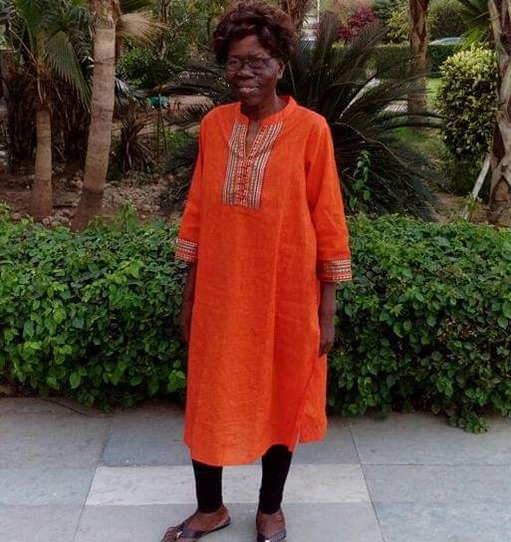 Julia Okere who was diagnosed with cancer of the bones and soft tissues. (Handout)
Julia Okere who was diagnosed with cancer of the bones and soft tissues. (Handout)
The 12-hour surgery in 2018 left the mother with a deformed face which was scary for the whole family but Caroline took the mantle of preparing her family psychologically to accept the new look.
Caroline paints the picture of thousands of caregivers in the country who have to, directly and indirectly, face the burden and pain of having a family member battling cancer. In Kenya, cancer is the third leading cause of death after infectious diseases and cardiovascular diseases. The high cost of cancer treatment and management is a key challenge faced by cancer patients and their caregivers.
"I had set up a pay bill number. I rallied my friends to help me with fundraising and that is how we managed to get her through treatment even in India," said Caroline.
In August 2020, Caroline's mum was no more. She succumbed to cancer.
"I got a phone call. 'My mum has rested' The doctor taking care of her called me a few moments after my mother died. My life exploded. My life took a turn."
She eventually made a vow to be actively involved in cancer awareness and joined the Kilele Health Association.
KileleHealth Association is a support group made up of 200 members that brings together caregivers, cancer patients and cancer survivors. The group, other than learning and encouraging members, organises mountain climbing and hiking activities with cancer survivors and caregivers, to spread the word that cancer is not a death sentence.
"Sometimes these patients don't die due to sickness. It is because the family members sometimes do not know how to handle and take care of their patients. People lack awareness and are not part of the counselling to prepare them to see the health of the family deteriorate day by day, "said Benda Githaka, founder and executive director of Kilele Health Association.
Benda was inspired to raise awareness and connect with caregivers across the country after caring for two family members diagnosed with pre-cervical cancer and Kaposi's sarcoma, a type of cancer that forms in the lining of blood vessels and lymph vessels--her sister and grandfather, respectively.
Her sister recovered, but her grandfather died later as a result of what she claims were adverse effects from cancer treatment.
"My grandfather is the one who raised me. It was devastating to get the news of his diagnosis."
Benda and her family were dealing with the challenge of treating their elderly grandfather with little optimism at the time, as doctors had gone on strike for 100 days, followed by a 150-day nurses strike. Patients were stuck, and several individuals suffering from long-term illnesses were left at a crossroads as government and healthcare personnel took a harsh line on both sides.
Private treatment seemingly was the way to go but very costly. "I was jobless at that time. I had initially resigned and remembered I had earlier taken care of my sister. Depression set in. Luckily due to my advocacy, I had a doctor friend who took my grandfather's case. But you see not all caregivers are lucky, she recalls.
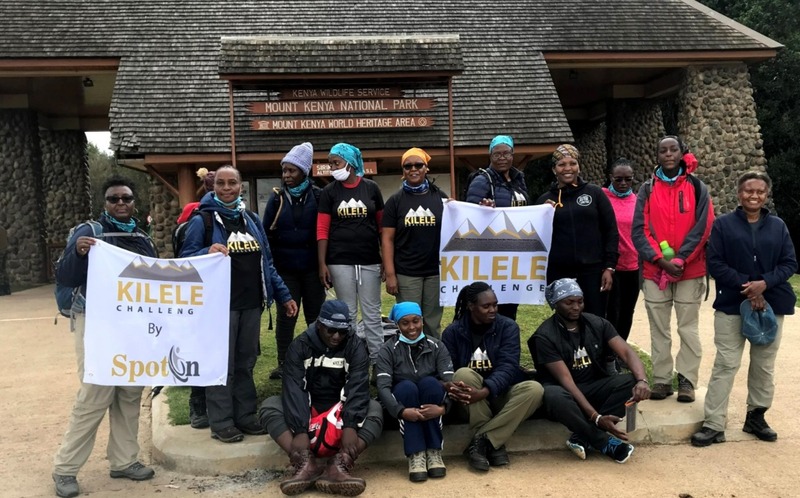
Every year, a group of cancer survivors takes up a mountain as part of the KILELE Challenge. Participants are bonded by their diverse cancer treatment and survivorship experiences. They embark on a six to nine-month preparation adventure to climb Mt. Kenya, accompanied by caretakers, coaches, well-wishers, and supporters. Every year, the ultimate summit takes place from September 20th to 24th.
"It is a case of the phoenix. Rising from the ashes to impact others positively. Survivorship as a means of prevention is what is helping us grow together. We are all beautifully broken," says Benda.
Various stakeholders have emphasised the need for the government to effectively fight the importation of the substances that pose a challenge in the fight against cancer in the country.
"We need to work in unison with all stakeholders to work more on preventive measures. Tobacco and alcohol use has been a key factor and is always mentioned as among the leading causes of cancer. Rehabilitation is key to help in battling an addiction to substances and drugs like tobacco, nicotine and alcohol," said Joel Gitali, Chair, of Kenya Tobacco Control Alliance, KETCA.
According to the Ministry of Health in Kenya, there would be an anticipated 58,000 new cancer cases in 2028, rising to an estimated 95,217 cases by 2040 as a result of population growth, greater life expectancy, urbanisation, and an increase in cancer risk factors.
Dr Wanda Dulcie, an oncologist from Nakuru County, argues that despite efforts to raise awareness and support systems in Kenya, the most significant difficulty remains late diagnosis and screening. Seven out of every ten cancer cases are diagnosed at an advanced stage.
"Kenyans are shunning vaccination and screening. You see, Kenya is a patriarchal society where men make decisions and we believe we need to engage men more to get the minors vaccinated. HPV vaccine helps in preventing cervical cancer, a leading cancer in women in Kenya," said Dr Dulcie.
Dr Dulcie further expresses the dire need for Kenyans to be actively involved in awareness, and adhering to a healthy lifestyle. The stigmatisation of cancer also plays a key role in the management of cancer.
"It is sad that some of our patients are abandoned by their caregivers. They walk alone. Some even die alone, they only have the medical team around their deathbed, "she stated.
Globally, the World Health Organisation has expressed its concern about the rise of cancer cases in the world. The Global Body projects that, "Cancer is a public health issue of major concern. Africa has only 3 per cent of the world's cancer treatment facilities, with radiotherapy available in just 22 countries in sub-Saharan Africa, contributing to very low survival rates."
Data from WHO shows that approximately 1.1 million new cancer cases occur each year in Africa, with about 700,000 deaths. Data reveals an increase in cancer mortality to nearly one million deaths per year by 2030, without urgent and bold interventions.
"We should recall that the most common cancers in adults include breast (16.5%), cervical (13.1%), prostate (9.4%), Colorectal (6%), and liver (4.6%) cancers, contributing to nearly half of the new cancer cases. With significant data challenges, childhood cancer incidence in sub-Saharan Africa is estimated at 56.3 per million populations," stated WHO.
Top Stories Today
